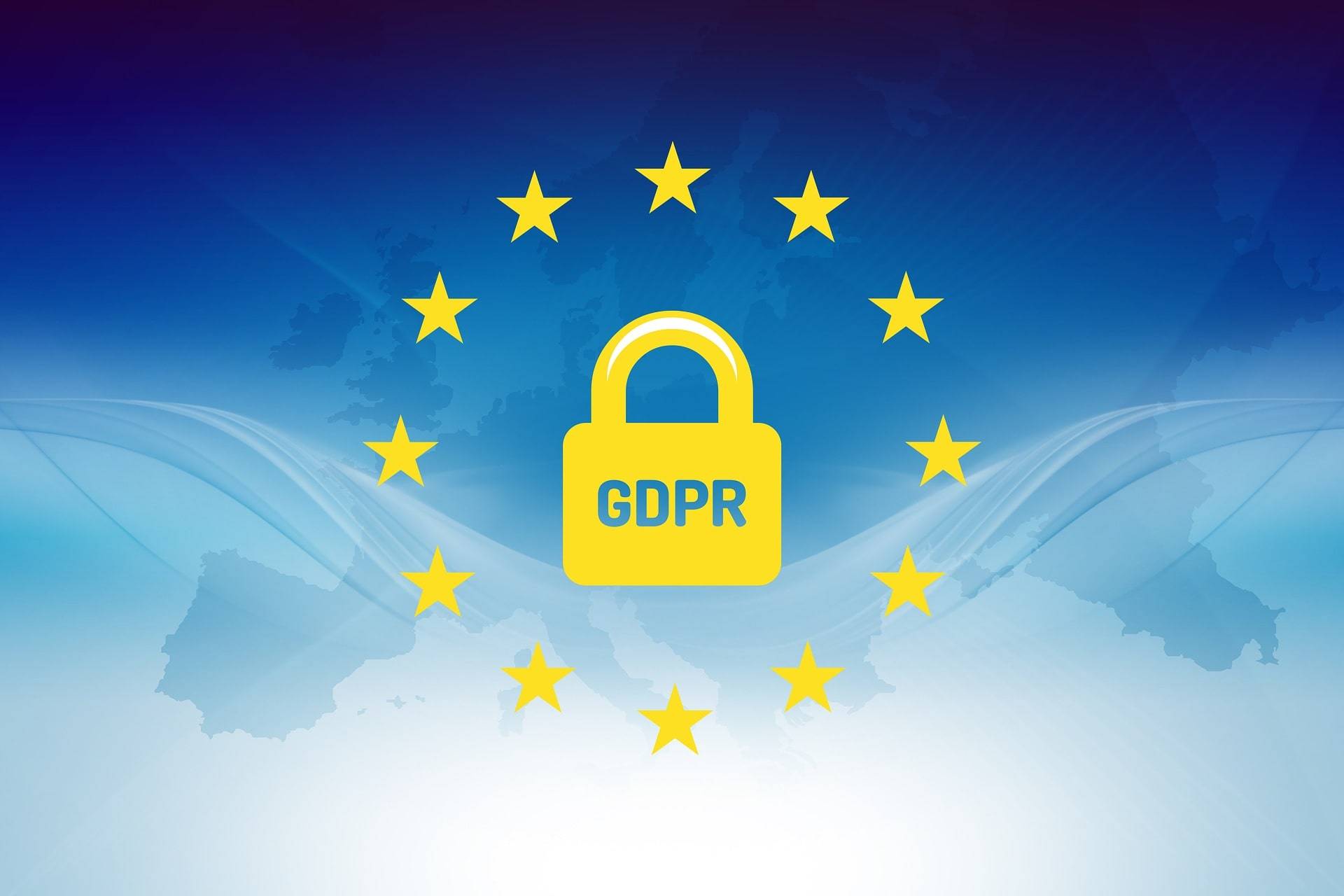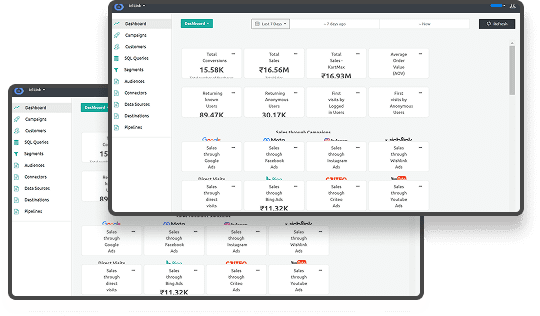"GDPR isn’t just a legal requirement—it’s the new standard of trust between businesses and their customers."
Overview of GDPR
The General Data Protection Regulation (GDPR), officially adopted by the EU on April 14, 2016, came into effect on May 25, 2018. Its primary purpose is to give people more control over how their data is collected, used, and stored by organizations. GDPR establishes strict transparency, consent, and security rules for businesses that collect and process personal data. This regulation applies to companies within the EU and any organization worldwide that handles EU residents' data.
The scope of GDPR is broad, affecting businesses of all sizes across industries. It covers personal data like names, emails, and IP addresses, ensuring that organizations take responsibility for protecting this information. Non-compliance can lead to significant fines, making it essential for businesses to understand their obligations. With the rise of digital technologies and data-driven marketing strategies, complying with GDPR is crucial for maintaining trust and avoiding legal consequences. Exploring how Ingest Labs embraces GDPR might inspire new ways to leverage data for your business responsibly.
Before anything, we need to know where it all began. So now, let’s explore the history of GDPR and how it evolved into the regulation we know today.
History of the GDPR
The General Data Protection Regulation was not created overnight. Its roots trace back to the growing demand for stronger privacy protections in Europe. Over the years, technological advances clarified that existing regulations were no longer sufficient to safeguard personal data. As a result, it emerged as a modern solution to protect the privacy of EU citizens.
Some of the factors that led to its birth are the following:
- The Right to Privacy in the European Convention on Human Rights:
The foundation of GDPR can be traced to the European Convention on Human Rights, which recognized the right to privacy. This established early protections for personal information in Europe, setting the stage for later developments.
- Technological Advancements Necessitating Modern Protections:
With the rapid advancement of technology, including the rise of the internet, it became evident that the laws needed to evolve. Personal data was being collected and shared unprecedentedly, leading to the demand for updated protections.
- The European Data Protection Directive of 1995:
Before GDPR, the European Data Protection Directive 1995 was the primary data privacy regulation. This directive was the first significant effort to standardize data protection across EU member states.
- Key Milestones Leading to GDPR:
Several milestones shaped the development of GDPR, including increased concerns over data breaches and privacy violations. Over time, the European Union recognized the need for a stronger, more comprehensive framework, which led to its formal introduction in 2016 and its enforcement in 2018.
Now that we know where it originated, let’s examine the key definitions and scope of GDPR, which will help you understand its critical components.
Key Definitions and Scope
To fully understand the General Data Protection Regulation, it’s important to grasp its key definitions and scope. It outlines specific terms related to data processing, personal information, and organizational roles. These definitions are essential for any business dealing with data collection and processing in the EU.
- Personal Data:
Personal data is any information that can directly or indirectly identify an individual. This includes names, emails, IP addresses, and data points like location or behavioral information. Under GDPR, protecting personal data is a core responsibility for all organizations. Organizations can streamline their data management processes by using comprehensive solutions like those from Ingest Labs, which prioritize user consent and data security.
- Data Processing:
Data processing involves any operation performed on personal data, such as collection, storage, use, or sharing. It requires businesses to process personal data legally, fairly, and transparently.
- Data Subject:
The data subject is the individual whose personal data is being processed. Under GDPR, data subjects have specific rights to control how their information is handled.
- Data Controller:
A data controller determines the purpose and means of processing personal data and ensures that the data is processed according to GDPR standards.
- Data Processor:
A data processor handles data on behalf of the data controller. Processors must follow the controller’s instructions and adhere to GDPR’s data protection principles.
- Applicability to Organizations:
GDPR applies to any organization that processes personal data of EU residents, regardless of where the company is based. This means businesses outside the EU must comply with it if they handle EU data.
- Consent:
Consent must be given freely, informed and unambiguously.
- Rights of Data Subject:
There are 8 rights that GDPR hands out:
- Right to access
- Right to data portability
- Right to be informed
- Right to restrict processing
- Right to erasure(right to be forgotten)
- Right to object
- Right to rectification
- Rights Related to Automated Decision-Making and Profiling:
After understanding the important attributes of GDPR, the next step is to learn about the penalties for non-compliance, including significant fines and legal consequences
Penalties for Non-Compliance
Non-compliance with GDPR can lead to severe penalties for businesses. Organizations that fail to meet their requirements face financial consequences that can significantly impact their operations. These penalties are designed to ensure that companies take data protection seriously.
- Two Tiers of Fines:
It outlines two levels of fines based on the severity of the violation:
- Tier 1: Fines of up to €10 million or 2% of global annual revenue, whichever is higher.
- Tier 2: Fines of up to €20 million or 4% of global annual revenue, whichever is higher.
The higher tier applies to more serious violations, such as failing to obtain proper consent or disregarding data protection rights.
- Right of Data Subjects to Seek Compensation:
Under GDPR, individuals whose data has been mishandled have the right to seek compensation. This empowers consumers to hold organizations accountable for data breaches and improper use of their personal information.
To avoid such hefty penalties, utilizing reliable tools like those from Ingest Labs that comply with the law can ensure your business remains on the right side of the law.
- Examples of Significant Fines Issued:
Many companies have already faced substantial penalties for non-compliance.
- For example, in 2019, Google was fined €50 million by the French data protection authority, CNIL, specifically for failing to provide transparent and informed user consent for ad personalization.
- Other major fines include those issued to British Airways and Marriott, showing that no organization is immune from its enforcement.
Here is a step-by-step guide on how Ingest Labs responds to a GDPR or APPs data breach.
Next, we’ll explore the core data protection principles outlined in it and why they matter for your business.
Data Protection Principles
The General Data Protection Regulation establishes seven key principles to ensure the responsible handling of personal data. These principles guide how organizations collect, process, and store data, ensuring it protects individual privacy and security.
- Lawfulness, Fairness, and Transparency:
Data must be processed lawfully and fairly. Under GDPR, organizations must be transparent about collecting and using personal data. Ingest Labs ensures that businesses using its analytics platform are equipped with tools to communicate clearly about the data they collect, why it’s collected, and how it will be used.
- Purpose Limitation:
Personal data must only be collected for specific, legitimate purposes. It cannot be used for any unrelated activities without proper consent.
- Data Minimization:
You should only collect data that is necessary. It encourages minimizing the amount of personal information gathered to what is essential for the stated purpose. Ingest Labs supports this principle by allowing businesses to define specific purposes for data collection.
- Accuracy:
Data must be kept accurate and up to date. This requires businesses to ensure personal information is correct and have processes in place to update or correct inaccurate data.
- Storage Limitation:
Personal data should not be kept longer than necessary. This requires businesses to define data retention periods and securely delete information when it’s no longer needed.
- Integrity and Confidentiality:
You must ensure the security of personal data. Organizations must protect data from unauthorized access, breaches, or accidental loss using appropriate technical and organizational measures.
- Accountability:
Businesses must be able to demonstrate their compliance with it. Accountability involves maintaining records, conducting audits, and ensuring proper training and processes are in place.
Next, let’s explore the legal bases for processing data under GDPR and how they apply to different situations.
Legal Bases for Processing Data
Under GDPR, businesses must have a lawful basis for processing personal data. It defines six legal bases, each covering different situations. Understanding these bases ensures that your data practices align with the law, protecting your business and your users.
Gary LaFever from Anonos says about GDPR in his LinkedIn post:
“This may shape the future of AI and data privacy in the EU and potentially worldwide.”
- Consent:
You can process personal data if you have obtained clear and explicit consent from the individual. Consent must be freely given, specific, and informed, and the individual should also have the option to withdraw it at any time.
- Contract Necessity:
Data can be processed if it is necessary to fulfill a contract. This applies when processing is required to perform a contract, such as providing services or products to a customer.
- Legal Obligation:
Processing is permitted if necessary to comply with a legal obligation. For example, businesses may need to process personal data to meet tax or employment regulations.
- Vital Interests:
Personal data can be processed without consent in emergencies where an individual’s life or safety is at risk. This basis is rarely used but is important in healthcare or crises.
- Public Interest Tasks:
Data can be processed if necessary for tasks carried out in the public interest or in the exercise of official authority. This applies to governmental or public-sector organizations.
- Legitimate Interests:
Businesses can process data for their legitimate interests if necessary, provided it doesn’t override the individual’s rights. This flexible basis requires businesses to balance their interests with privacy rights carefully. Ingest Labs places a premium on data security, employing state-of-the-art measures to safeguard the information it processes.
Next, we will discuss the rights of data subjects under GDPR, which empowers individuals to control their personal data.
Data Subjects Rights
Under the General Data Protection Regulation, data subjects have specific rights to give individuals greater control over their personal data. These rights ensure that individuals can manage how organizations collect, process, and store their information.
- Right to Be Informed:
Data subjects have the right to know how their personal data is used. Under GDPR, you must provide clear information about data collection, purposes, and how it will be processed.
- Right of Access:
Individuals can request access to the personal data you hold about them. Businesses are required to provide this information within a specific time frame, usually within one month.
- Right to Rectification:
They can request corrections if a data subject's information is inaccurate or incomplete. You must ensure that any incorrect data is promptly updated.
- Right to Erasure:
Commonly known as the “right to be forgotten,” individuals can request the deletion of their personal data. This right applies when the data is no longer necessary or if the individual withdraws consent.
- Right to Restrict Processing:
Data subjects can request that you limit the processing of their personal data in certain circumstances, such as when data accuracy is disputed.
- Right to Data Portability:
Under GDPR, individuals have the right to transfer their personal data from one service provider to another. This must be done in a structured, commonly used, and machine-readable format.
- Right to Object:
Data subjects can object to processing their personal data for marketing purposes or in other situations where legitimate interest is used as the legal basis.
- Rights Related to Automated Decision-Making and Profiling:
Individuals are protected from decisions based solely on automated processes, such as profiling, which may affect their legal rights or significantly impact them.
Next, let’s explore the conclusion, summarizing GDPR’s key points and importance for businesses.
Conclusion
GDPR has fundamentally changed the way businesses handle personal data. It sets clear guidelines to protect individual privacy and gives data subjects more control over their information. Understanding and complying with it is essential for maintaining trust and avoiding significant fines. Following its principles ensures that your data practices are lawful, fair, and transparent.
Ingest Labs helps businesses comply with GDPR by offering efficient data management solutions. From tracking digital properties to ensuring data security, Ingest Labs equips you with the tools to meet regulatory requirements while optimizing your marketing efforts. Don’t wait—start protecting your data and enhancing your compliance with Ingest Labs today. Ingest Labs is SOC 2 Type II, HIPAA, and GDPR compliant. Our solution is deployed within the EU GDPR zone and is in compliance with all data storage, processing, and forwarding requirements.






